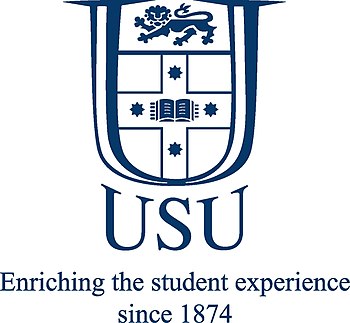Australia: Christian Union discriminates when only Christians can be members
 |
| English: Logo of the University of Sydney Union as at July 2009 (Photo credit: Wikipedia) |
Now student leaders at the University of Sydney
have threatened to deregister a student society called the Evangelical Union on
the basis that its requirement members believe in Jesus is discriminatory.
Yep, that’s right: the world of student politics
has become so instinctively illiberal that even the idea of a Christian society
being made up only of Christians freaks out these bossy bureaucrats. So
unversed are today’s student radicals in the history of freedom that they think
a group of like-minded people getting together to share their beliefs is a foul
form of separatism when actually it’s a little thing we like to call freedom of
association.
The EU’s constitution says members must sign a
statement declaring faith in “the Lord Jesus Christ as my Saviour”. And
according to the University of Sydney Union, limiting the membership or
leadership of societies to “those who ascribe to a particular faith” is
exclusionary. It goes against the union’s ethos of “accessibility and
inclusion”.
Basically the union is saying: “You are not being
inclusive, so we are going to stop including you.”
If there were a prize for the most Orwellian action
of the year (there really should be), the USU would surely win.
The student union has given the EU until March 31
to overhaul its constitution. But the EU is fighting back: this week its
members voted by a whopping 71 to 1 against changing its membership rules to
suit the tastes of the interfering union.
The student union is right that the EU is excluding
certain people, people who don’t believe in Jesus. But that is a key part of
freedom of association. We rightly oppose discrimination in the public realm of
work and public services. But in the private realm discrimination is not only
acceptable, it’s essential.
Catholic groups must be free to say only Catholics
may join them. Left-wing parties must be free to exclude right-wingers. Gay
men’s saunas must be free to tell straight women to go somewhere else. If such
groups are not allowed to say what is required of members, and to reject those
who fail to live up to those requirements, then the whole ideal of freedom of
association falls apart.
If ruling bodies, whether the state or a student
union that wields power on campus, can use pressure or threats to make private
associations rewrite their constitutions, which is the soul of all
institutions, then we enter into very dark territory indeed. We arrive at a
situation where the authorities can dictate whom we may link up with and what
we may believe.
Enlightenment thinkers knew the importance of free
association. John Locke, in his 1689 Letter Concerning Toleration, wrote about
“spontaneous societies”, groups based on beliefs. He said, “The right of making
its laws can belong to none other but the society itself.” If an official tried
to tell a “spontaneous society” what it should believe or whom it should
embrace, then the whole notion of freedom fell apart, Locke said.
This is happening today. And not only at Sydney
Uni. From the Tasmanian anti-discrimination officer’s investigation of the
Catholic Church for publishing a booklet upholding traditional marriage to
controversies over Victoria’s Equality Opportunity Act and its potential impact
on the freedom of religious groups to employ people of their religion, the use
of inclusion to bash freedom of association is widespread.
The Sydney Uni controversy suggests students aren’t
reading classic Enlightenment texts, for if they were they’d know modern
democratic societies are built precisely on the idea that we should respect the
freedom of all people to think, speak and organise as they see fit, whether or
not we agree with their ideas.

